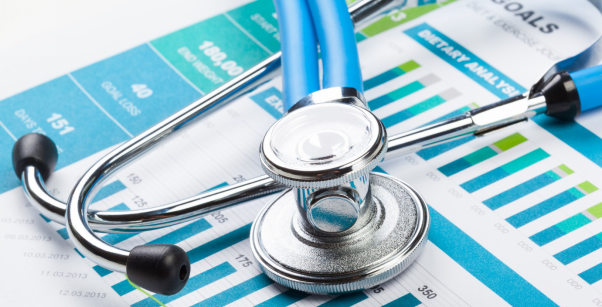How Analytics Can Revolutionize the Healthcare Ecosystem
April 23, 2019 | Tuesday | Views
Ashutosh Tiwari, Managing Director and Chairman – VBRI (Vinoba Bhave Research Institute) shares his views on analytics revolutionising the healthcare ecosystem
The continually churning wheels of technological evolution have boosted the growth of the Indian Healthcare Industry, which has become one of India’s largest industries in terms of both revenue and employment. Despite having a significant rise in the manpower, India is still thriving to provide quality healthcare to its population of over 1.37 billion. In recent years, Artificial Intelligence, Internet of Things, Blockchain, Cloud, Data Analytics, and other evolving techs have disrupted all segments of the Indian healthcare industry including hospitals, medical devices, clinical trials, outsourcing, telemedicine, medical tourism, health insurance, and medical equipment. Today, amongst all technologies, Data Analytics and Big Data have poised themselves as the essential fuel to mechanize other techs for healthcare evolution.
The Need of Analytics in Indian Healthcare
Whether it is patient care, healthcare delivery, or consumer satisfaction, Indian healthcare industry needs a complete overhaul and that is possible only by leveraging big data science and analytics. The ability of big data to solve continually growing large data volumes with greater accuracy can change healthcare delivery across the Indian geography. For instance, symptoms analytics allows figuring out what happened, while root cause and predictive analytics enable understanding of why it happened and what is likely to happen in the future. Predictive analysis of medical history and health data of patients collated and stored on a cloud system can help doctors derive precision medicine, which can address alarming treatment concerns related to both Communicable and Non-Communicable Diseases.
Statistically, India falls short under the WHO (World Health Organization) guidelines in terms of ideal doctor-patient ratio. Analytics aided telemedicine can address the issue ensuring quality healthcare to all across rural and urban areas. Patient records, cost, diagnosis, pharmaceutics, and medical research data are among other healthcare influencing factors that can be aptly analyzed with help of a robust analytics system. In fact, the insights from patient analytics can help organizations take real-time actions in healthcare and research for better service and medical care.
Analytics – A Quintessential Part of Telemedicine and Precision Medicine
As per Statista, the global telemedicine market will reach USD 40 billion mark by 2021. With the new advancements, telemedicine is also witnessing an expansion in the Indian healthcare sector. Currently, healthcare providers can access medical data of a patient distantly located in a remote area and can offer virtual consultation through audio-visual communication. The increasing role of big data will help doctors to evaluate patients with their personalized and pre-analyzed data and derive precision medicine for better healthcare delivery in real-time. The timely interventions with help of data analytics can improve patient health and eliminate the high treatment costs as well.
The concept of big data in the context of healthcare is considered one of the transformative drivers for intelligent healthcare delivery systems. Not just telemedicine, but mHealth is also poised to benefit from the developments in the field of healthcare data analytics. The greater outreach of mobile phones and wireless technology in healthcare is serving a dual purpose by - educating people for preventive healthcare services (majorly for NCDs) and helping healthcare providers with access of patient data for quality treatment. According to the statista the mobile health industry is predicted to reach almost USD 60 billion by 2020.
The evolution of mHealth will be driven by data analytics to a great extent. The fast progress of efficient healthcare record systems, wearable devices, and medical examination systems that implement techs like data analytics and artificial intelligence has become an important part of the way the healthcare sector works. The blockchain is effectively helping healthcare organizations to manage patient data stored on the cloud and also ensuring prevention of data breaching in the constantly increasing medical data. The secure and reliable method of recording, storing, and sharing sensitive data in the modern Electronic Health Records is aiding the growth of the healthcare sector and delivery of precision medicine.
Defining the Growth Curve of Indian Healthcare
Driven by the potential to improve the quality of healthcare, garnering intelligence from the massive quantities of data - ‘Big Data’, the modern Indian healthcare sector can provide better medical care and quality treatment. Today, analytics is helping healthcare organizations remind patients to keep up with a healthy lifestyle, as well as keep track of where a patient stands in regard to their lifestyle choices. IBEF expects Indian Healthcare Sector to reach USD 372 billion by 2022 and Analytics has an important role to play in this growth. VBRI Group is devoted towards building smart health infrastructures to solve daily problems and to pay more for sustainable lifestyles through technology-based ideas. The recently patented technology is related to e-clinics in India and that is now in the third-stage of field trials. The e-clinics is ready to provide simpler medical assistance through onlineaccess of doctors and other medical help around the clock via smartphonein the Indian countryside. This mass medicine technology will save many lives and will also strengthen the society.The demand for better healthcare driven by rising income, greater health awareness, lifestyle (NC) diseases, and increasing access to insurance can only be met with a revolutionary role of analytics in the Indian healthcare sector.









